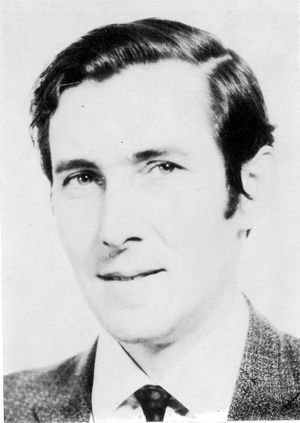Robin E. Davies
- Birthdate
- 1935/03/11
- Birthplace
- Essex, England
- Associated organizations
- Decca, BBC
- Fields of study
- Television
- Awards
- IEEE Vladimir K. Zworykin Award
Biography
Robin E. Davies was born on March 11, 1935 in Essex, England. His early gift for mathematics first showed itself in high school and led to the award in 1953 of an open scholarship to Merton College, Oxford, where he studied for three years, gaining a first-class honors degree. He then joined Decca Radar at their Research Laboratories in London as an electronics engineer. After spending two years assisting in the development of military radar, in 1958 he joined the Engineering Research Department of the British Broadcasting Corporation as assistant to the Mathematical Consultant, a post that brought him into contact with a wide variety of interesting engineering problems.
Having been persuaded by his colleagues, Robin returned to practical engineering in 1963 in the Television Group, who was at that time developing a "linestore standards converter" to enable the exchange of programs between the 405-line standard and the 625-line standard which was shortly to come into use in Great Britain. It seemed to him that in a few years time colour television would be universal and that advances in international communications and video-recording would make international program exchanges a daily possibility but that there was no way of converting between the U.S. 525-line and the 625-line pictures. Thus it was that he was led to invent his conversion system. After conducting some feasibility tests, the BBC decided to develop the system and the next Olympic Games to be held in Mexico City in 1968 became a target date for the converter to be put into service. During the following years he was a key member of the team of engineers who carried out the development; it was with some trepidation that they watched the conversion of the Olympic Games Opening Ceremony in October 1968 in the knowledge that 200 million viewers throughout Europe were also seeing the same converted picture. The success of this transmission and the continued use ·of the equipment for both live and recorded shows led to the award to Robin of a "Pye Colour Television Award" at the 1969 Annual Dinner of the British Television Society and the "S.G. Brown Award" from the Royal Society. Davies received the 1972 IEEE Vladimir Zworykin Award "For his development of the field-store standards converter which permits US colour television (NTSC) signals and those from the European (PAL) system to be exchanged directly."
Subsequently, Robin has spent a short time grappling with electromagnetic radiation problems and returned once again to mathematics in the position vacated by the retiring Mathematical Consultant.
Robin lived in Surrey, England and spends most of his leisure time with his wife, Pamela, and two sons. Together they enjoyed trips to places of interest and to coastal resorts. Robin also liked several other games and past-times and from time to time plays tennis, badminton, table tennis, chess, and bridge. He was very interested in music and was a keen pianist.
